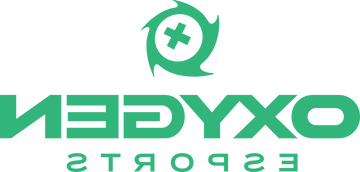Hey there! I’m Aaron “PRE” Heckman, General Manager of your Boston Uprising. In today’s edition of our newsletter, The PREgame, I’m going to dive in to one of the most frequent topics I get asked about — breaking into esports as a career.
My trajectory was far from normal for the industry. But the more I work in this space, the more I find "normal" doesn't really exist. The one common thread I have found for people finding their way in esports is that they hit their stride applying things they're good at in a field they love.
Here's my story. I majored in economics at Cornell, and took electives in information sciences and business. Right after school, I worked as a financial consultant before moving into startups and tech. Gaming was just a hobby.
After some soul searching, I decided I wanted to break from the mold and try my hand at a "passion" career. The Overwatch League was just starting, and New York Excelsior (NYXL) assistant coach WizardHyeong was positioning himself as “the coach bringing Moneyball to esports.” He was doing a lot of data-heavy coaching, and posted a job on Twitter looking for a data analyst to help him in their first season in the OWL.
What I think got me the job was how I positioned myself differently than most other applicants. Knowing Wizard already had a few folks doing heavy data analysis for him, I reframed the ask in my application. I said I thought he needed someone that would help him pull ideas from the existing data, not just one more person to collect data.
The idea of "pulling ideas from data" is exactly what I was doing at my previous job. It was both a better fit for me and I think a more compelling sell to Wizard. We’ve now worked together at two different stops; I joined him on the Washington Justice as an assistant coach and finally as General Manager.
When hiring, it's always great to see people who love esports. But that's a standard prerequisite for working in any industry. What sets a candidate apart in esports, and what drives my own hiring decisions, is relevant skills that can then be applied into esports. This industry is still very much in start-up mode, so there's not always time to learn on the job.
It also gives you a safety net. If things turn for the worse, you're not left standing on just your passion for esports, but instead have a well-rounded resume that translates well into other industries.
For example, the term "separating signal from noise" is thrown around a lot in tech. This is something I did a lot. Data is infinite, so the idea of "Big Data" right now is less about just getting more of it, and instead about being able to use what you have. That skill is relevant in esports, consulting, tech and beyond.
If you're looking to break into the business, don't rely 100 percent on your "passion for the industry" to get your foot in the door. Find out what you're good at and find ways to apply that in esports. Teams need people that can make an impact on day one, who can help drive esports further by bringing in skills and knowledge still growing in the scene.
Esports still relies heavily on their communities to contribute and grow, and this is often where great candidates are found. We've frequently hired people who've worked at LANs and differentiated themselves with their professionalism. Opportunities like these can sometimes be limited. Fortunately, there's a flourishing second-tier scene that's hungry for volunteers and people out to prove their ability.
Esports benefits from the low barrier to entry, where anyone can mock up a design, manage a small team, or run social media for a new group. These are invaluable experiences that hiring managers will look for.
Does the scene feel like a risk to enter right now? It's definitely a bit of a roller coaster, but it's not too risky just yet. Several high-profile organizations recently downsized after growing too quickly or making bad assumptions on finances; But having learned these lessons, many of them are better for it, and designing teams in a more sustainable model.
Esports is in a position that many startups have been in the past few years. They feel risky, but have the upside of gaining rapid experience, growing with an organization, and being able to make a difference.
If this is truly a career path you're interested in, I think things are still trending up — and maybe in a more sustainable way than they ever have been.
Aaron "PRE" Heckman
General Manager
Boston Uprising
@PRE_owl



